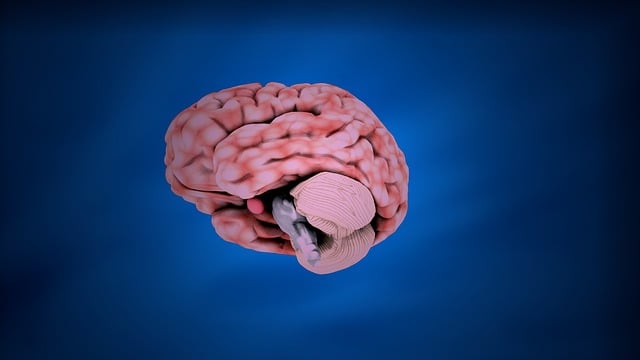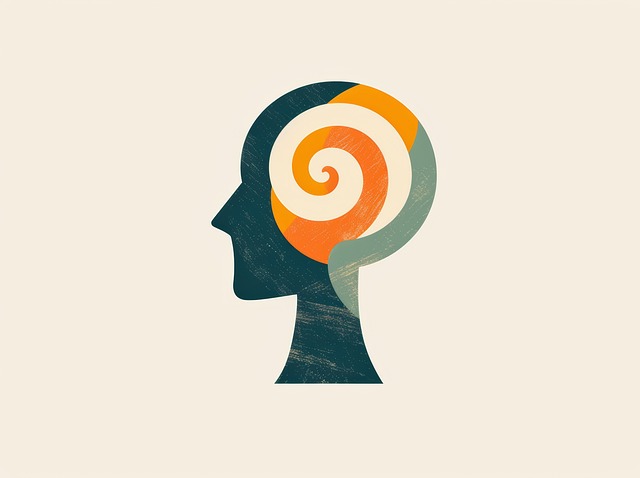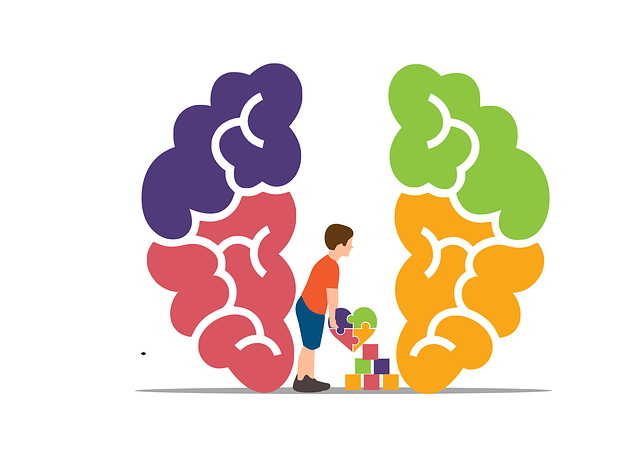Recognizing depression in teens is vital as it significantly impacts their long-term health and prospects. Key signs include persistent sadness, loss of interest, changes in eating/sleep habits, fatigue, concentration issues, and thoughts of death or suicide. Early intervention through specific therapeutic approaches, such as Emotional Intelligence, Stress Management Workshops, Mind Over Matter principles, CBT, and Compassion Cultivation Practices (CCP), is crucial for treating co-occurring depression and eating disorders in adolescent teens. Lifestyle changes focused on mental wellness, including regular exercise, balanced diets, adequate sleep, self-care practices, and social skills training, also play a vital role. Building a robust support network through open communication, mental wellness coaching programs, and parental education equips teens to manage their emotional challenges effectively.
Depression among adolescents is a growing concern, but with the right strategies, prevention is achievable. This article explores vital approaches to safeguard teen mental health, focusing on early identification of depressive symptoms in teens. We delve into evidence-based therapy as a potent tool against both eating disorders and depression. Additionally, it highlights lifestyle modifications and the importance of supportive networks in fostering adolescent well-being. By addressing these key areas, parents, caregivers, and educators can empower teens to navigate challenges and thrive.
- Recognizing the Signs of Depression in Teens
- The Role of Therapy in Preventing Eating Disorders and Depression
- Lifestyle Changes for Improved Mental Health
- Building a Support Network for Adolescent Wellness
Recognizing the Signs of Depression in Teens

Recognizing depression in teens is crucial as it can significantly impact their overall well-being and future. Adolescent teenagers often struggle with emotional regulation, and what may seem like typical teenage mood swings could be a red flag for something more serious. Signs to look out for include persistent feelings of sadness or emptiness, loss of interest in activities once enjoyed, changes in appetite and sleep patterns, fatigue, difficulty concentrating, and thoughts of death or suicide. These symptoms can manifest due to various factors, including stress, peer pressure, academic expectations, or even underlying medical conditions, such as eating disorders.
Seeking help early is vital. Therapy for adolescent teens with eating disorders has proven effective in addressing both the disordered eating and co-occurring depression. Emotional Intelligence, a key component of many successful therapeutic approaches, empowers teens to understand and manage their emotions healthily. Additionally, Stress Management Workshops Organization provides valuable tools for coping strategies, while Mind Over Matter principles teach resilience and positive thinking, offering adolescents practical ways to navigate life’s challenges without resorting to unhealthy behaviors or negative thought patterns.
The Role of Therapy in Preventing Eating Disorders and Depression

For many adolescents struggling with depression, therapy serves as a powerful tool to prevent and manage eating disorders. Cognitive Behavioral Therapy (CBT), in particular, has shown significant effectiveness in targeting negative thought patterns and behaviors associated with both depression and eating disorders. By teaching teens coping strategies to manage stress, CBT empowers them to challenge distorted thoughts and develop healthier relationships with food.
In addition to CBT, Compassion Cultivation Practices (CCP) have gained attention as valuable burnout prevention strategies for healthcare providers and a means to foster resilience in adolescents. CCP involves mindfulness exercises and cultivating self-compassion, which can help teens regulate emotions, reduce symptoms of depression, and build a positive body image. When combined with stress management techniques, these therapeutic approaches create a holistic framework to support mental health and prevent the onset or escalation of eating disorders.
Lifestyle Changes for Improved Mental Health

Adolescent teens facing eating disorders or depression can greatly benefit from lifestyle changes aimed at improving mental health. Encouraging regular physical activity, a balanced diet, and sufficient sleep can significantly impact mood regulation and overall well-being. Incorporating stress management workshops or social skills training can help build resilience against emotional challenges and foster healthy relationships, which are crucial for recovering individuals.
Self-care practices like mindfulness, meditation, and journaling have been proven effective in managing symptoms of depression. These activities promote better emotional awareness and coping strategies. By integrating these lifestyle adjustments into their routines, teens can proactively support their mental health recovery alongside traditional therapy.
Building a Support Network for Adolescent Wellness

Building a strong support network is crucial for adolescent wellness and can serve as a powerful tool in depression prevention. For teens struggling with issues like eating disorders or those seeking therapy for adolescent mental health, having a reliable system of support is essential. This includes friends, family, peers, and even professional trauma support services. Encouraging open communication and fostering an environment where teens feel comfortable discussing their feelings can significantly contribute to burnout prevention.
Incorporating mental wellness coaching programs can be beneficial in this context, teaching adolescents valuable coping strategies and skills for stress management. By providing a safe space for expression, these networks enable young individuals to navigate their emotions healthily. Additionally, involving parents or guardians in the process, through education and training, empowers them to offer better support at home, fostering overall mental wellness development.
Depression prevention among adolescents is a multi-faceted approach, encompassing early recognition of signs, evidence-based therapy for eating disorders and depression, promoting healthy lifestyle changes, and fostering robust support networks. Integrating these strategies can empower teens to navigate mental health challenges effectively, paving the way for improved well-being and resilience. For parents and caregivers, staying vigilant and encouraging open conversations are key to identifying risks early on. Seeking professional guidance, such as therapy tailored for adolescent teens with eating disorders, is an essential step in preventing depression and fostering a brighter future.














